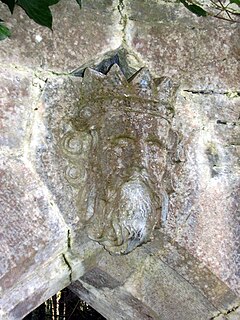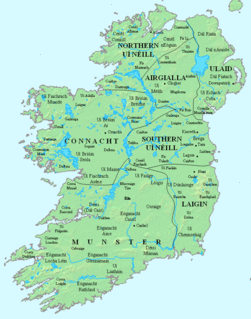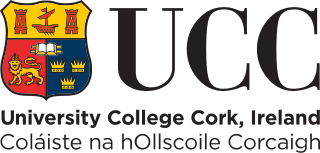
Ruaidrí Ua Conchobair was King of Connacht from 1156 to 1186, and High King of Ireland from 1166 to 1193. He was the last High King of Ireland before the Norman invasion.

The First Battle of Athenry was fought on 15 August 1249 at Athenry in modern County Galway, Ireland. The Gaelic forces of Connacht besieged the town but were repelled by the Normans under Jordan de Exeter, Sheriff of Connacht.
The Kings of Magh Luirg or Moylurg were a branch of the Síol Muireadaigh, and a kindred family to the Ua Conchobair Kings of Connacht. Their ancestor, Maelruanaidh Mor mac Tadg, was a brother to Conchobar mac Tadg, King of Connacht 967–973, ancestor of the O Connor family of Connacht. Maelruanaidh Mor mac Tadg is said to have made a deal of some nature where, in return for abandoning any claim to the provincial kingship, he would be given Moylurg. His dynasty was known as the Clan Mulrooney, and later still took the surname of MacDermot. The following is a list of their Kings, followed by the respective heads of the family up to the present day.
Bébinn a.k.a. Bé Binn, is an early Irish name applied to a number of related and unrelated figures in Irish mythology. In some sources Bébhinn is a goddess associated with birth and the sister of the river-goddess, Boann. Bébinn is also described as being an underworld goddess in both Irish and Welsh mythology, inhabiting either the Irish underworld Mag Mell or the Welsh Annwn, although it is unknown which is the original source.
Órla, Órlaith, Orla or Orlagh is a female given name of Celtic origin. The root form of the name is Órfhlaith, interpretable as "golden princess" as it combines the Gaelic elements ór ("gold") and fhlaith, its full feminine form being banfhlaith.

Uí Díarmata was a local kingdom located in what is now north County Galway.
Úna is an Irish language feminine given name. It may be derived from the Irish word uan (lamb). Alternative spellings are Oona and Oonagh. The Scottish Gaelic form is Ùna.
Síol Muireadaigh, Gaelic-Irish dynasty and territory, located in north County Roscommon.
Gráinne is a feminine given name in the Irish language. The name is of an uncertain origin, although it is possible that it may be connected with the word "Ghrian", meaning "the Sun". In Irish legend, Deorghrianne, is the daughter of Fiachna, Son of Betach. The name is also borne by a famed character in Irish mythology—Gráinne, who was the daughter of Cormac mac Airt, a legendary High King of Ireland.
Dubhchobhlaigh Bean Ua hEaghra, a.k.a. Dubhchobhlaigh Ní Conchobair, Queen of Luighne Connacht, died 1131.
Mór is a Gaelic-Irish female given name.
Raghnailt, Norse-Gaelic female given name.
Órlaith is an Irish language female given name. Orlagh is a hybrid spelling based on confusion with the Irish word for "Inch" among non-Irish speakers. The meaning of the name derives from Ór, meaning "Golden" and Flaith, meaning "prince" although as names with "flaith" suffixes are almost always exclusively feminine, this is usually interpreted as meaning "princess". The retention of the 'fh' within the spelling maintains the ability to easily derive the true meaning of the name, but as this is silent, it is common to see this redacted. All spellings of the name are however pronounced the same, as "OR-la".
Gormflaith is an Irish language female given name meaning "blue princess" or "illustrious princess".
Fionnghuala is an Irish language female given name.
Dubh Essa was a medieval Gaelic feminine given name, fairly common in 13th- and 14th-century Ireland.
Dubh Essa Níc Eidhin, Queen of Moylurg, died 1187.
Cobhlaith Mór Ní Conchobhair, Gaelic Lady, died 1395, Ireland.
Sir Dermot MacDermot (1906–1989), self-styled Prince of Coolavin, Chief of the Name, head of the MacDermot clan, and a descendant of the Kings of Moylurg.

Manorhamilton is the second-largest town in County Leitrim, Ireland. It is located on the N16 between Sligo 16 miles (26 km) and Enniskillen 25 miles (40 km).

The International Standard Book Number (ISBN) is a numeric commercial book identifier which is intended to be unique. Publishers purchase ISBNs from an affiliate of the International ISBN Agency.








